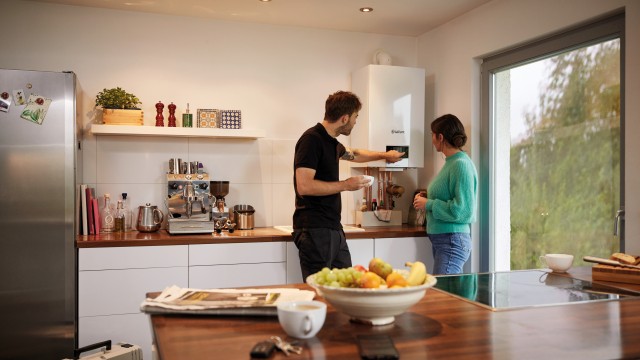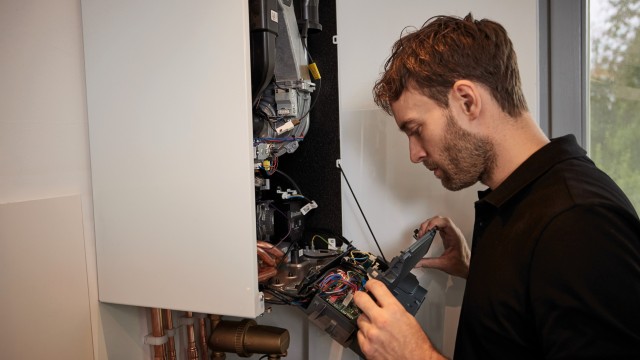Faulty or leaking pipes are one of the most commonly found sources of hot water-related issues. Pipes are essential for carrying hot water throughout the home, so any issues with your network of pipes results in issues with heating your home or washing with hot water. While it can be difficult to diagnose a pipe issue, there are some common places you can diagnose this.
For instance, the condensate pipe that transports the waste water produced during a boiler’s condensing process can become frozen in cold weather as it carries the liquid outside. Upon freezing, your boiler system will automatically shut down as a safety precaution.
You will be able to see an error code on your boiler’s display panel if this is the case, and often the best solution is to pour hot water onto the external pipe to thaw it. If this does not work, call an engineer to carry out further checks for you.
Another common pipe issue is airlock, whereby air becomes trapped in the pipes and leads to water blockages. Air can build up over time and collect in the pipes, blocking hot water from being delivered to radiators and taps. You should consult a GSR engineer to look into this issue further with you and drain the system.


_image_640w_213h.jpg)

